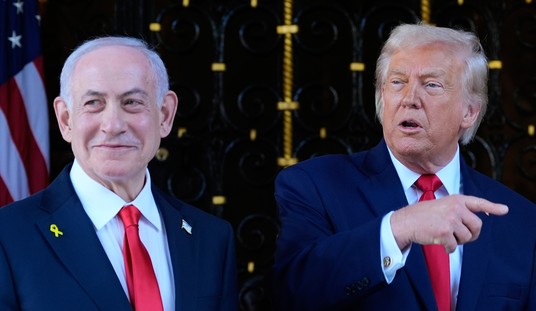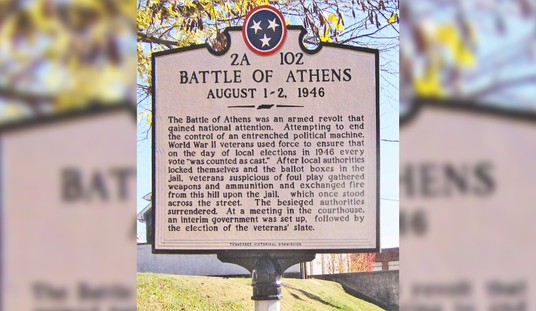The foolish think the breakdown is due to the recent Gaza flotilla; the naïve, who pass for the sophisticated experts, attribute the collapse to the December 2008-January 2009 Israel-Hamas war in the Gaza Strip.
Such conclusions are totally misleading. The relationship breakdown was already clear — and in private every Israeli expert dealing seriously with Turkey said so — well over two years ago: the cause was the election in Turkey of an Islamist government.
Turkey’s AK Party government has not permitted a single new military contract with Israel since it took office. The special relationship was over then.
Turkey needed Israel as an ally when a secular government in Ankara regarded Iran, Syria, and Saddam Hussein’s Iraq as its main threats. Once there was a government which regarded Iran and Syria as its closest allies, Israel became a perceived enemy.
When the Turkish armed forces were an important part of the regime, they saw Israel as a good source for military equipment and an ally against Islamists and radical Arab regimes. But once the army was to be suppressed, its wishes were a matter of no concern. Depriving it of foreign allies was a goal of the AK Party government.
When Turkey thought it needed Israel as a way to maintain good relations with the United States, the alliance was valuable. But once it was clear that U.S. policy would accept the AK — and was none too fond of Israel — that reason for the alliance also dissolved. Prime Minister Recep Tayyip Erdogan announced:
It’s Israel that is the principal threat to regional peace.
At first, this outcome was not so obvious. The AK Party won its first election by only a narrow margin. To keep the United States and EU happy, to keep the Turkish army happy, and to cover up its Islamist sympathies, the new regime was cautious over relations with Israel. Keeping them going served as “proof” of Turkey’s moderation.
Yet as the AK majorities in elections rose, the government became more confident. No longer did it stress that it was a center-right party with family values. The regime steadily weakened the army, using EU demands for civilian power. As it repressed opposition and arrested hundreds of critics, bought up 40 percent of the media, and installed its people in the bureaucracy, the AK’s arrogance and its willingness to throw off its mask grew steadily.
And then, on top of that, the regime saw that the United States would not criticize it, not press it, not even notice what the Turkish government was doing. President Barack Obama came to Turkey and praised the regime as a model of moderate Muslim democracy. Former President Bill Clinton appeared in Istanbul, and in response to questions asked by an AK Party supporter, was manipulated into virtually endorsing the regime’s program without realizing it.
Earlier this year, the situation became even more absurd as Turkey moved ever closer to becoming the third state to join the Iran-Syria bloc. Syria’s state-controlled newspaper and Iranian President Ahmadinejad openly referred to Turkey’s membership in their alliance, and no one in Washington even noticed what was happening. Even when, in May, Turkish policy stabbed the United States in the back by helping Iran launch a sanctions-avoidance plan, the Obama administration barely stirred.
A few weeks ago, the Turkish prime minister said that Iran isn’t developing nuclear weapons, that he regards President Ahmadinejad as a friend, and that even if Iran were building nuclear bombs it has a right to do so. And still no one in Washington noticed.
Turkey was not only what the Obama administration wanted in a Muslim-majority country, it was also one of the “responsible powers,” to quote the administration’s national security strategy document, that the White House saw as necessary attendants to shore up a weak America at the Home for Aging Senile Superpowers.
The current Turkish government hates Israel because it is an Islamist regime.
Note who its friends are: It cares nothing for the Lebanese people; it only backs Hezbollah. It never has a kind word for the Palestinian Authority or Fatah; the Turkish government’s friend is Hamas.
Lately for the first time, the AK government began to run into domestic problems. The poor status of the economy, the growing discontent of many Turks with creeping Islamism in the society, and the election — for the first time — of a popular leader for the opposition party began to give hope that next year’s elections might bring down the regime. Indeed, polls showed the AK sinking into or very close to second place. With the army neutered, elections are the only hope of getting Turkey off the road to Islamism.
A Turkish colleague gave an explanation of this situation some time ago, an analogy most ironic given the Gaza flotilla issue. It was very important, he explained, that the Turkish people not become the enemy for the West and Israel. They were merely the passengers: the regime — the captain and the crew — was the problem.
But then the Gaza flotilla sailed in. Many oppositionist Turks see this as close to a conspiracy, and one can hardly blame them for doing so. A radical Islamist group close to the government organized this whole affair, which while nominally independent, enjoyed the Turkish government’s patronage.
What has now happened is the regime’s manipulation of the two powerful symbols in Turkey that motivate people: nationalism and Islam. This is an anti-nationalist government, dismantling the traditional traditions of the Ataturkist republic. But it has managed to wrap iself in the Turkish flag.
The way it has been presented is that Israel has attacked Turkey and its honor. Any hint that the demonstrators had attacked the soldiers, held extremist views, and refused to send in the aid through Israel or Egypt was omitted.
A national hysteria has been whipped up. In huge demonstrations, Palestinian flags were waved and slogans chanted: “Stop military collaboration with the Israeli army,” “Kill all the Israelis,” “Allah akbar,” “Death to the Jews,” and “Attack Israel.”
Even the opposition parties shouted their outrage. The government had three demands: all Turks be released immediately (something Israel had already announced would happen, but the regime pretended this only came about due to its tough stance), there be an international investigation, and Israel pay compensation. Turkey’s top leaders spoke of Israel as committing “piracy” and “terrorism,” the latter term one never applies to Hamas or Hezbollah.
Is this the magic weapon the AK will use to gain reelection next year? Many Turks think so, and are angry at Israel for, in their eyes, helping the survival of the regime they hate.
But for the AK government to succeed in benefiting politically, it’s going to have to create several more crises to keep nationalist fervor stoked.
Any idea of saving Israel-Turkey relations is an illusion. Any thought that Turkey can be an acceptable mediator for an Israel that the regime loathes is ridiculous. But that is only the beginning.
The question now becomes: how much can Turkey sabotage U.S. interests before U.S.-Turkish relations go the same way? The defection of Turkey to the other side would be the biggest strategic shift in the Middle East since the Iranian revolution three decades ago.
Pretending that this isn’t happening will not change it.









Join the conversation as a VIP Member